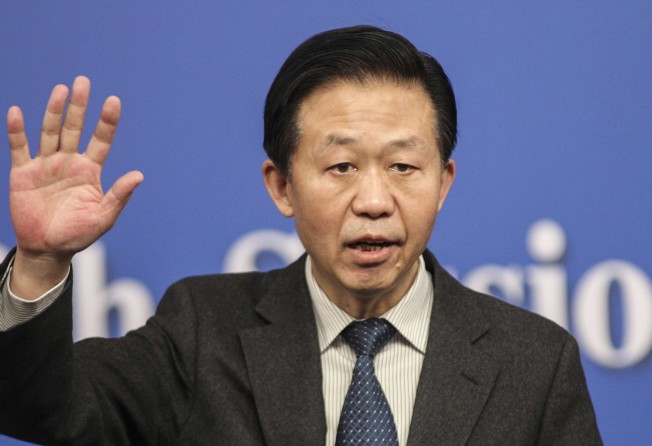Tax reform on Beijing’s mind but relief for wage earners not likely anytime soon

Chinese taxpayers are keeping their fingers crossed that Beijing will cut the personal income tax rate after the former Chongqing mayor and current National People’s Congress committee member called for reform of the tax system.
But it may not be a near term certainty as the country’s finance minister Xiao Jie offered no clues about a timetable for potential tax reductions in a press briefing on Tuesday. Xiao, a former taxation chief who was promoted to his current post late last year, said the ministry is working to implement a comprehensive method of collecting taxes on salaries and wages, annual remuneration for services rendered, and introducing new tax deductions such as education spending for a second child.
The ministry is also looking at raising the taxable income threshold, Xiao added, without giving a specific figure.
The monthly tax exemption threshold of 3,500 yuan (US$507) has remained unchanged since 2011 when China’s top legislature adopted an amendment to the individual income tax law to raise it from 2,000 yuan. There have been periodic calls to raise the threshold to reflect inflation.
Also on Tuesday, former Chongqing mayor Huang Qifan was quoted by local media as calling for the highest tax rate to be slashed by almost half. Huang, now deputy chairman of the economic and finance committee under the National People’s Congress, proposed cutting the highest individual tax rate on salaries from 45 per cent to 25 per cent to free up household consumption and attract skilled professionals whose are mostly paid with wages, China Securities Journal reported.
Huang quoted a comparable rate of 15 per cent in Hong Kong and 22 per cent in Singapore, noting that the high mainland rate was outdated and has in fact driven professionals out of the country, the media report said.
China currently levies individual income tax on salaries in seven brackets, ranging from 3 per cent to 45 per cent. It was simplified from a nine-bracket system in 2011 with the lowest rate cut from 5 per cent at the time.
“We don’t anticipate a big cut in the tax rate on salaries and wages for the time being,” said Irene Yu, a Deloitte tax partner based in Shanghai. “This round of reform is more tilted towards changing the traditional China ‘classified personal tax filing system’ to a more ‘integrated personal tax filing system’ by simplifying certain taxable income categories and increasing deductible items to make the tax law fairer.”
Though nominal tax rates may remain unchanged, more deductable items such as family care expenses will eventually result in a reduction of effective tax rates, Yu said.
China has been preparing for the reform for years, including beefing up a tax collection system that tracks individual tax payments nationwide.
“But major reform steps won’t be implemented any time soon given that detailed implementation rules should be tailor made for China, as well as the complex legislative procedure that it needs to go through,” she said. “It is expected that we could see the implementation in the next two years.”
Hu Yijian, a professor at Shanghai University of Finance and Economics, agreed that a large one-off tax rate cut would be too bold to implement immediately even though it reflects calls from the higher earning middle-class.
Instead, it is likely that items including home mortgage interest, rentals and education fees will be allowed as deductions, he said.
“Tax cuts could mean shrinking tax revenue but such tax relief could in turn generate consumption and bolster the economy,” said Freeman Bu, an EY tax partner in Shanghai. “Individual income tax accounts for a relatively small proportion of total tax revenue so its reform could mean limited impact on China’s fiscal coffers.”
Mainland China’s individual income tax revenue rose by 17.1 per cent to 1 trillion yuan last year, accounting for 7.7 per cent of its total tax revenue. The mainland collected 13 trillion yuan in taxes in 2016, up 4.3 per cent from a year ago.
“We expect tax cuts for the lower-income group but a beefed up tax collection on wealthy people who are supposed to shoulder the main tax-paying responsibility,” he added.
Mainland Chinese salary earners have complained about high tax rates and not enough deductible items, which in turn makes the world’s second largest economy less competitive from a human resources cost perspective, Bu said.
“The reforms will be performed in a few phases,” he said. “Hopefully the first-phase reform will be implemented in the next two years after going through the necessary approval process although no official timetable is available yet.”